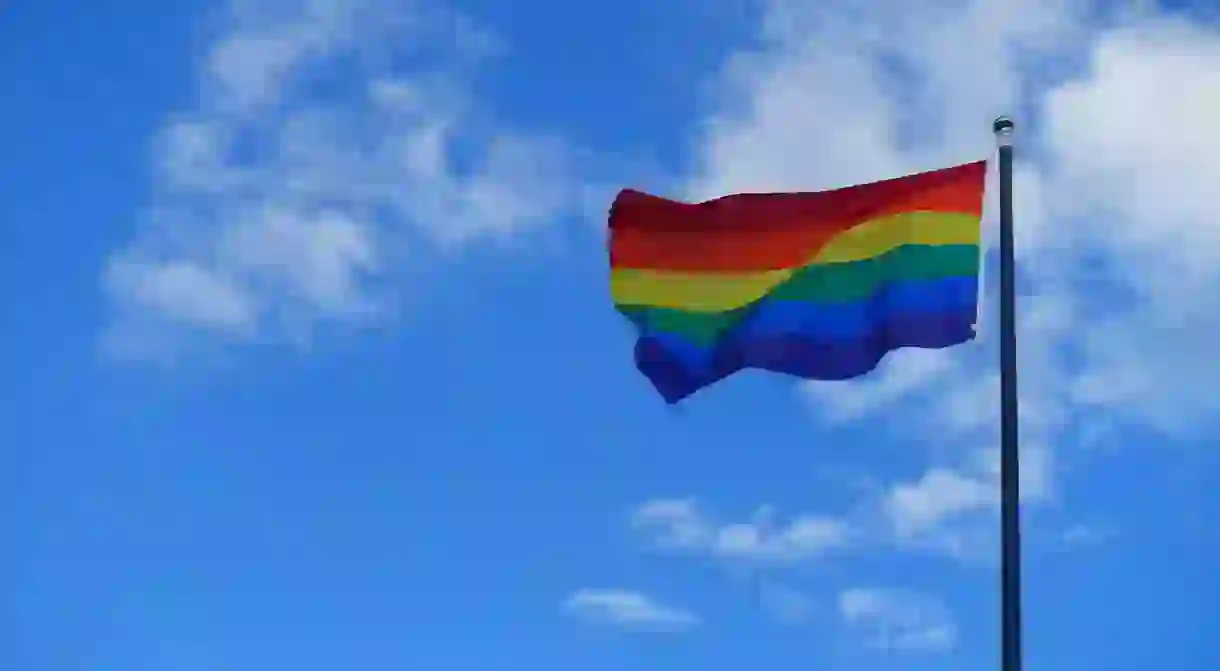Thailand Officially Pledges to Become Top LGBTQ Destination

Already a hotspot for LGBTQ travellers, Thailand says it wants to welcome ‘every possible shade under the rainbow’. From the notorious gay nightlife scene in hedonistic Bangkok, to Thai society’s ‘live and let live attitude’ that travellers experience all the way from the breathtaking mountaintops of Chiang Mai to the azure waters of Phuket, Thailand has long been considered a LGBTQ-friendly destination. But the Southeast Asian country’s tourism authorities are finally breaking cover and making a concerted effort to woo gay visitors of all persuasions.
According to travel industry publication TTG Asia, the Tourism Authority of Thailand recently hosted the inaugural LGBT+ Travel Symposium in Bangkok, where the organisation’s deputy governor Srisuda Wanapinyosak said Thailand is ‘open to every possible shade under the rainbow’. She added that the country is aiming to see ‘exponential growth’ in the LGBTQ tourist segment, and that it even intends to develop itself into a model example for other countries in the region and worldwide to follow.
Thailand’s economy is heavily dependent on the tourist industry, and the Tourism Authority of Thailand has in recent years been pursuing increasingly ambitious annual tourist arrival figures, as well as focussing on encouraging so-called ‘quality tourists’ who are especially high spenders.

The allure of high-spending LGBTQ travellers for Thailand
London-based luxury gay travel magazine editor Uwern Jong – which was billed as hosting the LGBT+ Travel Symposium – told TTG Asia that annual growth in the gay travel segment is far outstripping that in the industry as a whole, and that LGBTQ travellers statistically both earn and spend on travel much more than straight people, making the segment a commercially attractive one for Thailand to target.
According to the symposium’s organisers, LGBTQ travel was worth US$192 billion in 2016, with travellers from this segment spending 55% more per arrival than the average traveller. They also claim that 60% of LGBTQ people are more likely to buy from LGBTQ-welcoming brands, and that even 37% of heterosexual consumers feel more positive about destinations that promote diversity and inclusion.

Srisuda added: ‘We have been watching the LGBT+ segment with great interest in the last decade. We are proud that LGBT travellers can stay anywhere in Thailand with complete peace of mind. Our mission is to position Thailand as a preferred destination to experience diversity.’
The LGBT+ Travel Symposium, bringing together global LGBTQ-oriented travel buyers and media with the Thai travel trade for networking and information exchange, was marketed as an intimate opportunity to ‘not just promote diversity and inclusion among the Thai travel industry’ but also to ‘forge strong…commercial and reputational links’.
Speakers included those from the Tourism Authority of Thailand, Pacific Asia Travel Association, and hotels in Bangkok and the region, as well as LGBTQ activists and media representatives like the TV personality behind the Thai adaptation of RuPaul’s Drag Race. Brands paying extra for one of 30 limited platinum tickets – in addition to the general admission fee of US$249 – got access to one-on-one elevator-pitch-style marketplace sessions, as well as an informal ‘Rainbow Edition’ pool party.
Not a rosy situation for everyone
As a travel destination for lesbian, gay, bisexual and transgender people from overseas, Thailand is indeed by and large safe and welcoming. For locals in the largely conservative nation, though, the situation is less clear-cut. While Thailand arguably sees less explicit homophobia than many other countries around the world, the situation is often more of a case of ‘don’t ask, don’t tell’ than of true acceptance and tolerance.

Same-sex marriage has yet to be legalised in Thailand – widely seen as the law not keeping up with the times, since public opinion is often found as largely in favour of gay marriage – and legal protection against sexuality based discrimination is effectively non-existent. Transgender people, too, are often seen as sidelined and left with limited career options other than in the entertainment industry, and bullying of so-called ‘krathoeys’ or ‘ladyboys’ – most notably in schools and in the drafting process for compulsory military service – remains rife.













